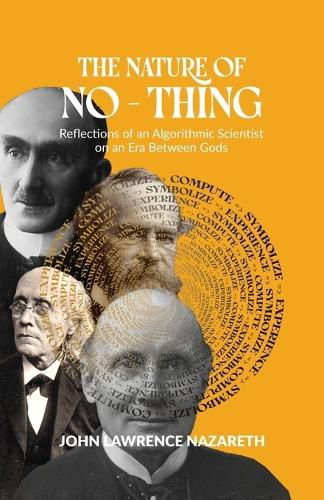Readings Newsletter
Become a Readings Member to make your shopping experience even easier.
Sign in or sign up for free!
You’re not far away from qualifying for FREE standard shipping within Australia
You’ve qualified for FREE standard shipping within Australia
The cart is loading…






This title is printed to order. This book may have been self-published. If so, we cannot guarantee the quality of the content. In the main most books will have gone through the editing process however some may not. We therefore suggest that you be aware of this before ordering this book. If in doubt check either the author or publisher’s details as we are unable to accept any returns unless they are faulty. Please contact us if you have any questions.
"It's a tour de force. A masterly synthesis of a vast and varied mass of material, and a penetrating and illuminating commentary. I hope it will be widely read. The world would be a better place if it were." Charles Foster, Fellow of Exeter College, Oxford University.
"What an amazing experience it has been to read this book. It's a deep dive into what philosophers have said about consciousness, helping me appreciate the almost paradoxical embodiment in Generative AI of enormous powers along with severe limitations on trustworthiness," Peter Denning, 18th President of the Association for Computing Machinery (ACM).
"A significant contribution to the field of philosophy. I find Nazareth's investigation of the realm of the symbolic particularly important. His approach is authentic, interdisciplinary, and refreshing." Sanja Ivic, International Society for Philosophers (ISFP).
Science today is largely governed by an expanded version of Descartes' famous dictum: "I compute, therefore I think, therefore I am."
The overarching thesis of this book argues that this dictum must be reversed. Only then can the natural sciences move beyond their current focus on the world of "things" and develop a deeper understanding of the psychological and phenomenological realms of nature-the world of "no-thing." Rooted in the "natural philosophy of organism" espoused by four great philosopher-scientists-Henri Bergson, William James, Gustav Theodor Fechner, and Alfred North Whitehead-this book offers insights into the mystery of consciousness and addresses the deep spiritual malaise of the present.
The exploration extends to the implications of artificial intelligence (AI) and ChatGPT, considering how these emerging technologies intersect with and challenge the book's central thesis.
$9.00 standard shipping within Australia
FREE standard shipping within Australia for orders over $100.00
Express & International shipping calculated at checkout
This title is printed to order. This book may have been self-published. If so, we cannot guarantee the quality of the content. In the main most books will have gone through the editing process however some may not. We therefore suggest that you be aware of this before ordering this book. If in doubt check either the author or publisher’s details as we are unable to accept any returns unless they are faulty. Please contact us if you have any questions.
"It's a tour de force. A masterly synthesis of a vast and varied mass of material, and a penetrating and illuminating commentary. I hope it will be widely read. The world would be a better place if it were." Charles Foster, Fellow of Exeter College, Oxford University.
"What an amazing experience it has been to read this book. It's a deep dive into what philosophers have said about consciousness, helping me appreciate the almost paradoxical embodiment in Generative AI of enormous powers along with severe limitations on trustworthiness," Peter Denning, 18th President of the Association for Computing Machinery (ACM).
"A significant contribution to the field of philosophy. I find Nazareth's investigation of the realm of the symbolic particularly important. His approach is authentic, interdisciplinary, and refreshing." Sanja Ivic, International Society for Philosophers (ISFP).
Science today is largely governed by an expanded version of Descartes' famous dictum: "I compute, therefore I think, therefore I am."
The overarching thesis of this book argues that this dictum must be reversed. Only then can the natural sciences move beyond their current focus on the world of "things" and develop a deeper understanding of the psychological and phenomenological realms of nature-the world of "no-thing." Rooted in the "natural philosophy of organism" espoused by four great philosopher-scientists-Henri Bergson, William James, Gustav Theodor Fechner, and Alfred North Whitehead-this book offers insights into the mystery of consciousness and addresses the deep spiritual malaise of the present.
The exploration extends to the implications of artificial intelligence (AI) and ChatGPT, considering how these emerging technologies intersect with and challenge the book's central thesis.